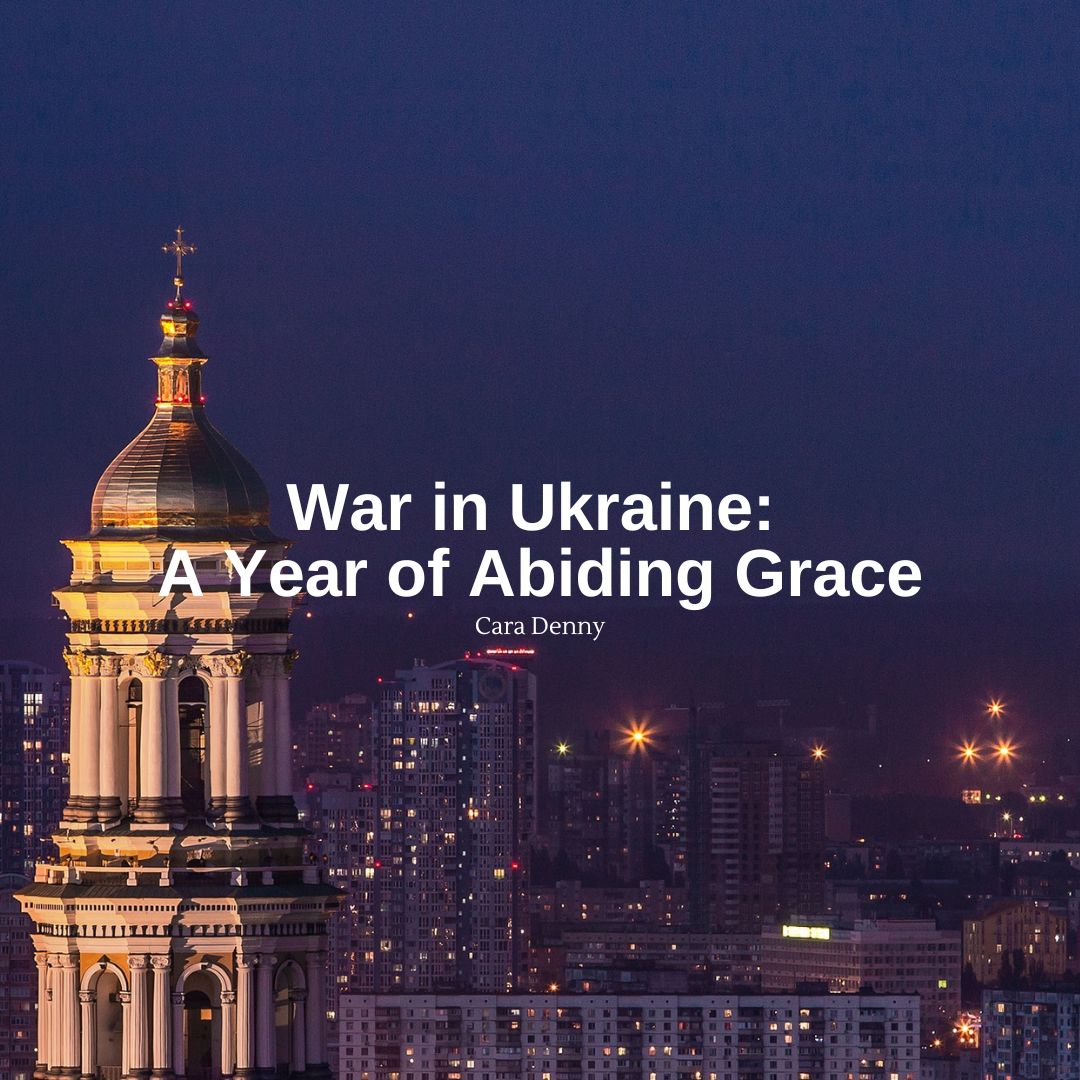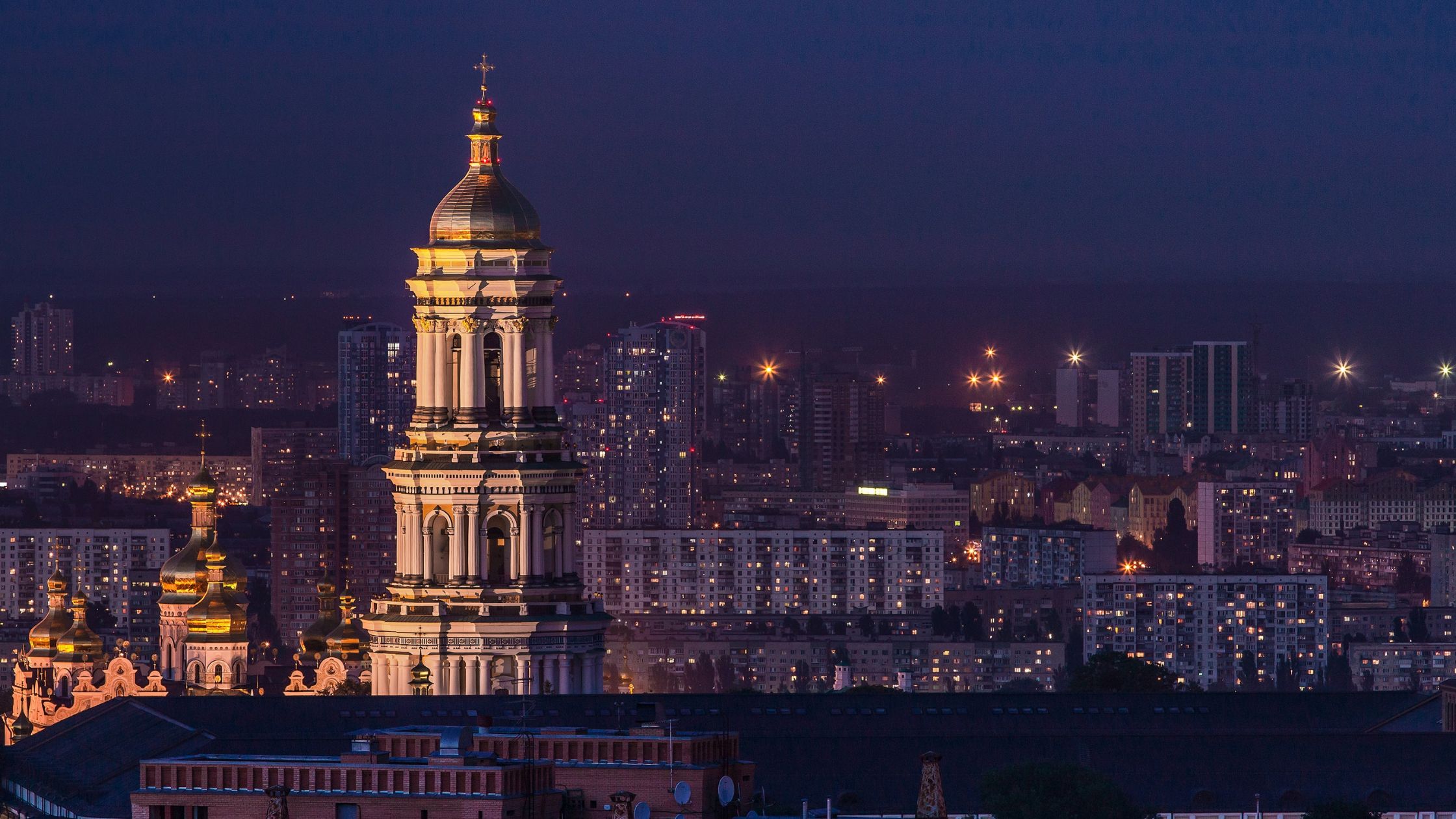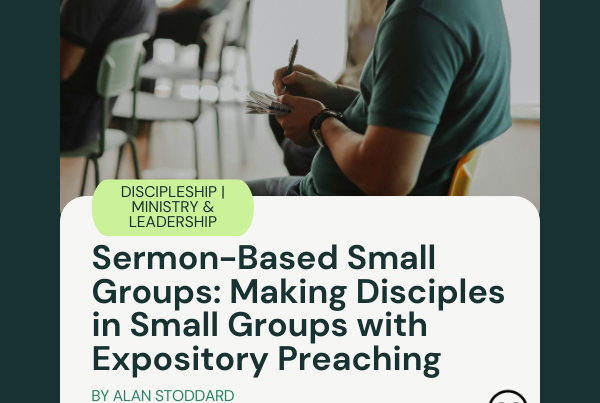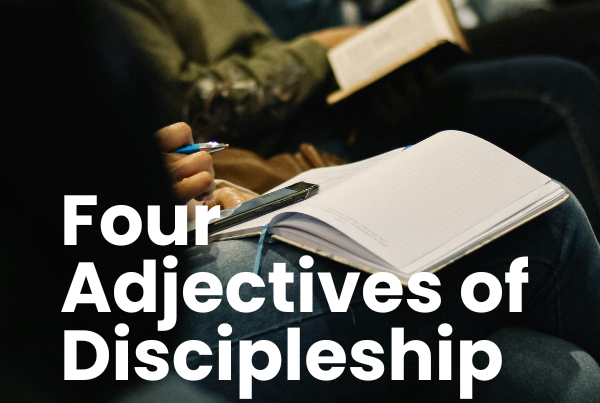
5:00 a.m. I awoke abruptly to my phone ringing in my apartment in Budapest, Hungary. It was February 24, 2022.
“They’re bombing Kyiv. We’re at war.”
The War Starts
My friend from Ukraine, on a work trip abroad, was calling looking for a place for him and his team to stay until they could return to Kyiv. No one imagined that a year later Russia would still be attacking Ukraine and these displaced Ukrainians would still not be going home. Nor did we imagine that this early morning cry for help would be the first of hundreds of calls and texts from people fleeing the war that my pastor (Árpi Horváth Kávai) and I would receive over the next few months.
Even before refugees started actually arriving in Budapest, the war had already barged its way into my home with that initial 5:00 a.m. call and then daily, via communication with friends trapped in areas surrounded by the heat of the battle. One friend was calling and texting from a basement crowded with over 100 people hiding from the attacking troops outside. Contact slowed as water and food started to run out but thankfully renewed when she was evacuated, only to culminate in a frantic call as they met a tank on the road. Another friend sent audio recordings of the missiles flying above her home. On a video call with yet another friend, I saw Russian tanks moving down the streets below where they lived in Bucha. Still another friend sent a video showing artillery flying on either side of the train where she and her small children, along with thousands of others, were leaving their homes seeking safety. And on and on and on. I’ve never felt so helpless before in my life. And this was just the beginning.
The Body of Christ Meeting Needs
When these friends, and the relatives and friends of friends, started pouring into Hungary (and into my home as well), so many people in Budapest and around the world mobilized to help (and continue to selflessly do so to this day). At this writing, I’m very nominally involved in the war effort personally, but even before, when I was actively involved, I was just one among countless others. Seeing the Body of Christ doing so much to help everyone affected by this war has been amazing. Every person helping has their own vital part to play, and many have been tirelessly helping since Russia’s forceful annexation of Crimea in 2014, when the war truly began for Ukrainians. And of those serving, all have so many heart-rending tales of the people they’re helping, of God’s provision, and of the ongoing efforts still so desperately needed.
But just as I was jolted awake by the call last February announcing the “start” of the war, this past year of ongoing conflict has been a wake-up call forcing me—and maybe others—out of the slumber of works-based Christianity and inviting us to return to the foundation of abiding in grace. Because, as the book A Non-Anxious Presence, by author and pastor Mark Sayers posits, “crisis is a great revealer, … bringing to light myths and idols we didn’t know we had.”1
Returning vs. Running
For thus said the Lord God, the Holy One of Israel,
“In returning and rest you shall be saved;
in quietness and in trust shall be your strength.”
But you were unwilling, and you said,
“No! We will flee upon horses”;
therefore you shall flee away;
and, “We will ride upon swift steeds”;
therefore your pursuers shall be swift.
Isaiah 30:15-16
The “myths and idols” Isaiah refers to in this passage (where he’s addressing the Israelites during their time of crisis) were their own wisdom and fast horses. That was what the people of Israel trusted, not the Holy One of Israel. Against all human logic, God tells them not to run but to return. So, despite the specific circumstances here for the nation of Israel, the eternal point for all of us is not so much about exactly returning or running. The deeper lesson here is, where is our trust?
Isaiah’s words here are also in the context of battles. Whether it’s fleeing an enemy or offering succor to those in need, the temptation for the Christian, particularly those of us in vocational ministry, can be to run to “lean on the arm of the flesh” (Jer. 17:5). In other words, like the Israelites, we depend on our own wisdom or strength.
Desperate times, logically, often require desperate and intense responses. But the subtle siren’s call of works-based Christianity is that on the surface, those “running” or “arm of the flesh” responses can look very much like “resting” efforts fueled by the Spirit. Only the inward motivation of the heart is the dividing line. Whether the photo-op is because lives have truly connected in the midst of chaos and tragedy or because it’ll look good in a newsletter and raise more money, neither is intrinsically right or wrong. So how do I know whether my actions come from a spirit of “running” or “resting”? And even more so—what difference does it make?
I wished I’d asked these questions before all my running this past year left me broken, exposing sharp edges that then cut others, all while endeavoring to respond to the war.
Thankfully, God was, and is, gracious. He reaches out with wisdom and correction to His children, stubbornly drawing us back to grace.
But sadly, if—like me—we don’t heed God’s call to rest as a discipline, often we only hear it when we’re completely winded and have—as runners say—“hit the wall.” I was in such a state when in the early months of the war, a young woman staying in my home in Budapest knocked on my bedroom door late at night. Like so many people helping Ukrainian refugees, I was exhausted doing what I could to help with the flood of people arriving in Budapest needing immediate help. It was nearly 2:00 a.m., and I was finally home to my houseful of Ukrainian friends. I slipped into my room as quietly as possible, but before I could collapse into bed, she was in my room looking worried and stressed:
“People are telling me I should forgive Putin” was her plaintive cry.
“Do I need to forgive Putin?”
Wow, no pressure here! What to answer? Thus far in helping refugees I’d been drawing on an arsenal of “weapons of the flesh” (2 Cor. 10:3-4) built up from 20 years of serving in Ukraine and a few years in Hungary. I knew how to pick people up at the train station and drive them throughout Budapest. I knew how to speak to people in a language they were familiar with and offer comfort and give a hug. I understood the culture and knew how to minister to Ukrainians. I thought. I was operating pretty confidently … in my own abilities.
But forgive the man responsible for destroying your home and killing and raping your friends and relatives? I knew what the Bible said about forgiveness; it’s a favorite subject that I teach. But forgive him? It wasn’t that I doubted Scripture or that I wanted to massage the truth in order for someone to feel better. But neither did I want to tell this woman (as I’d been recently told) that “you know, not all Russians are bad.” We both knew that in our heads. We aren’t racists. But right then, with her eyes brimming with both anger and hurt, she asked but didn’t really seem to be ready for any answer other than that it was okay to wish a long and painful death for the man guilty of bringing so much pain into her life.
How was I to show compassion and yet not compromise the truth? How do you mourn with those who mourn and yet answer such a question with biblical integrity? Much to my own surprise, I found myself saying:
You don’t need to think about Putin at all. You need to just think about Jesus.
Think about how much He loves you. Think about His death and resurrection.
Think about how He longs to hold you.
And whenever and whatever you do think about Putin, just invite Jesus into that.
Don’t hide it. Don’t justify it or run away from it either.
Just invite Jesus into everything you’re thinking and feeling,
and He will get your heart and head where they need to be, in His timing and His way.
Just focus on Jesus.
Of course, there’s so much more to this question than just the answer I gave. But at that moment, the “answer” for both of us wasn’t in what I said but in what the Spirit led me to do: release control. I couldn’t “fix” this war any more than she could forgive Putin, even if she’d wanted to. We both had to let go and let God do what we could not. I’d forgotten that this is a lifelong process. It’s impossible to run the race with Jesus while holding onto the weight of control.
Therefore let us also, seeing we are compassed about with so great a cloud of witnesses, lay aside every weight, and the sin which doth so easily beset us, and let us run with patience the race that is set before us, looking unto Jesus the author and perfecter of our faith, who for the joy that was set before him endured the cross, despising shame, and hath sat down at the right hand of the throne of God. For consider him that hath endured such gainsaying of sinners against themselves, that ye wax not weary, fainting in your souls. Hebrews 12:1-3
Running While Resting
Resting doesn’t mean doing nothing. And looking unto Jesus doesn’t mean trivializing and constricting our responses to tragedy so that they fit into expressions of grief that are “acceptable” for others. (I once heard a teacher repeatedly insist that Mary wasn’t scared at the Annunciation. Despite the angel’s statement of “be not afraid,” they assessed that since Mary wasn’t hysterical, she wasn’t afraid. This teacher had limited acceptable expressions of fear. We all do—for fear or any emotion. We usually just don’t realize that until our limitations are challenged.)
But the example that we see throughout the Bible is to look to Jesus, trusting that He will bring our heart in line with His Truth as we surrender all that’s within us: the thoughts and feelings we can grasp, as well as those too horrible to even look upon. We can run to Him and the work He’s set before us, resting in the truth that although it’s more than we can handle, He’s not overwhelmed. He’s enough. His grace upholds us and releases us from needing to rely on our own strength, or even our own “right” thinking or feeling. Just as grace calls us unto salvation, it calls us into His transforming love as we walk and work with Him every day. The secret isn’t so much in doing or not doing but in that very religious of words—“abiding.”
Abide in me, and I in you. As the branch cannot bear fruit by itself, unless it abides in the vine, neither can you, unless you abide in me. I am the vine; you are the branches. Whoever abides in me and I in him, he it is that bears much fruit, for apart from me you can do nothing. John 15:4-5
Abiding, in this context, can also be literally translated as “staying,” “not leaving,” or “remaining.” All of these seem to be fairly passive sounding “action words” for a verb. But abiding is anything but passive. The resilience of the Ukrainian people in remaining in their homeland despite unrelenting attacks for this past year should help in understanding that staying can indeed be a very aggressive action. For the believer, in order to “remain” in Christ in our thoughts, emotions, as well as actions—neither running ahead nor lagging behind Jesus—we have to first and foremost be aware of all those things in our hearts and minds. You can’t choose to remain in Christ unless your options are clearly seen.
Works-based Christianity encourages, either overtly or by implication, ignoring or downplaying feelings and difficult thoughts and simply charges a person to do what is necessary, what is “right.” Crudely said, it’s the voice in our culture that says, “suck it up, Buttercup.” There’s definitely a place for obedience superseding over-analyzation and self-centered rebellion to God’s call for submission to His will. But often, our desire for action or resolution ultimately equals a thirst for control. Working hard and “getting a lot done” can be whitewashed to seem godly when in reality it can sometimes simply be the idolatry of resistance to God’s sovereignty, including the difficulty of allowing Him to control the parameters of suffering.
Humans, even Christians, and especially those of us whose livelihood is directly connected to our ministry, can live under the shadow of a silently accepted standard of “proving your worth.” Although we mentally acquiesce to the idea of our human brokenness before God, we want to appear whole. We want ourselves and others to be done grieving, to move on, to get things done. But when the cause of our grieving persists, we’re deceived again into the lure of control by focusing on what needs to be done to “fix” things or who must pay for our pain. But as Susan VandePol (author and conference speaker certified in Grief, Crisis and Trauma Counseling, among others) says, “blame is death’s co-conspirator.” Blaming and the bitterness it leads to gives us the false feeling of “doing something” and therefore—back to our old anesthesia of being in control. Thankfully, as VandePol reminded us at a recent grief seminar at CCCM’s yearly Missions Conference, “Someone does have to pay for our pain. And Someone has—Jesus.”2
Abiding = Being vs. Doing
In speaking with a farmer friend recently (while looking into the process of winter “dying” for grapevines), I asked about the life of the plant in the face of harsh circumstances. Because Jesus promised that “in this world you WILL have tribulation” (John 16:33), I was anxious to hear the farmer’s answer. Plain and simple, he explained that “Remaining connected to the root is just doing what plants do. It’s just what they are designed to do. And in the winter that looks like just ‘hunkering down.’”
VandePol builds upon my farmer friend’s observations with the analogy of someone struggling in water while wearing an emergency life-vest. The more they try to swim and act in the water as they normally do (without a vest), the more difficult and exhausting it’ll become. VandePol says, “when they lean back and trust the life-vest to support them and quit thrashing about, well that’s abiding.”3
Many Ukrainians, and those who are endeavoring to care for them, are understandably struggling to adjust to this new emergency situation. A conflict of this scale, with this level of barbarous war crimes, and the threat of nuclear attack on the European continent, was previously thought a thing of the past. So many things about this war are unprecedented. It’s understandable that everyone affected is grasping for life as they once knew it and trying to simply repeat and recreate whatever they were doing previously, in Ukraine or abroad. But now they have a big awkward life-vest of “refugee” or “refugee aid worker” hanging on them. It comes with inflated emotions tied to current events as well as past wounds, bulky foreign bureaucracy, and cords of humbling dependance on others, as well as people depending on them in ways they didn’t before the war.
In the face of such great needs, a heart set on abiding can look like inactivity. But even with the analogy of leaning back into the life-vest, active choices are being made. Choosing to surrender control and instead trust, responding to objective truth rather than changing circumstances only, and acknowledging logic but allowing it to be superseded by higher realities (such as the principles of flotation, etc.) are necessary to stay afloat amongst the waves of adversity. Simply put—we have to remember and trust that God’s work isn’t ultimately kept afloat by our efforts. Finally, the life-buoy for it all has to be the all-all-encompassing reality of our status as Beloved.
“…he chose us in him before the foundation of the world, that we should be holy and without blemish before him in love: having foreordained us unto adoption as sons through Jesus Christ unto himself, according to the good pleasure of his will, to the praise of the glory of his grace, which he freely bestowed on us in the Beloved …” Ephesians 1:4-6
When we know the God who adopts us as His own, we can surrender control. We can let our darkest thoughts and emotions be revealed before Him without shame. We can appear to others to be inactive when we bring our brokenness and the broken world around us into the light of the truth of Jesus and His grace. But, only truth (not increased efforts) brings wholeness. And, as we walk towards that eternal goal of wholeness in Christ, all the while living in this world of war and sin, only truth can also bring comfort and restore hope. The Apostle Paul knew this when he wrote to the church in 2 Corinthians 1:8-11:
For we do not want you to be unaware, brothers, of the affliction we experienced in Asia.
For we were so utterly burdened beyond our strength that we despaired of life itself.
Indeed, we felt that we had received the sentence of death.
But that was to make us rely not on ourselves but on God who raises the dead.
He delivered us from such a deadly peril, and he will deliver us.
On him we have set our hope that he will deliver us again.
You also must help us by prayer, so that many will give thanks on our behalf for the blessing granted us through the prayers of many.
Keep praying for Ukraine, Ukrainians, and all who love them. We want an end to the war. But even more, we want to want Jesus. “On Him we have set our hope.”
References
1 Mark Sayers, A Non-Anxious Presence: How a Changing and Complex World will Create a Remnant of Renewed Christian Leaders (Chicago: Moody Publishers, 2022) back cover.
2 Susan VandePol, “Your Grief: Facing Your Grief When Others Want To Look Away” (lecture, CCCM Missions Conference, Costa Mesa, CA, January 5, 2023).
3 VandePol, “Your Grief.”










